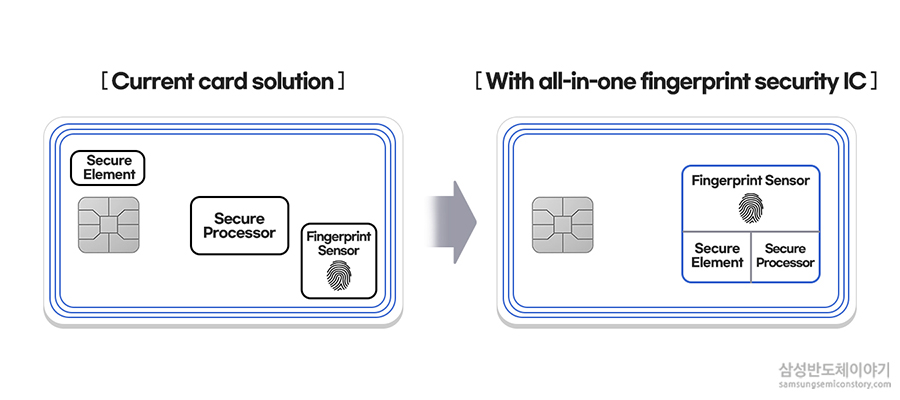Samsung Introduces Smart All-in-One Fingerprint Security IC for Biometric Payment Cards
SEOUL, Korea – Jan. 25, 2021 – Samsung Electronics Co., Ltd., a world leader in advanced semiconductor technology, today introduced its new fingerprint security IC (integrated circuit) ─ S3B512C ─ with enhanced security features. The new solution is EMVCo and Common Criteria Evaluation Assurance Level (CC EAL) 6+ certified and performs in line with Mastercard’s latest Biometric Evaluation Plan Summary (BEPS) specifications for biometric payment cards.

“S3B512C combines a fingerprint sensor, Secure Element (SE) and Secure Processor, adding an extra layer of authentication and security in payment cards,” said Kenny Han, vice president of System LSI marketing at Samsung Electronics. “The S3B512C is primarily designed for payment cards but can also be used in cards that require highly secured authentications such as student or employee identification, membership or building access.”
The new security IC is the industry’s first all-in-one security chip solution that reads biometric information through a fingerprint sensor, stores and authenticates encrypted data with a tamper-proof SE, and analyzes and processes data with a Secure Processor. With the three key functions integrated in a single chip, the S3B512C can help card manufacturers reduce the number of chips required and optimize card design processes for biometric payment cards.
With the new security IC embedded, biometric payment cards will allow faster and safer interactions when making purchases. The biometric authentication removes the need to enter a PIN on a keypad and also prevents fraudulent transactions made with lost or stolen cards as it verifies the cardholder’s identity using a unique and securely stored fingerprint.
The solution’s encrypted fingerprint data is stored in a SE that has received globally accredited certifications such as EMVCo and CC EAL 6+. To safely and accurately verify the user’s identity, the new IC comes with a proprietary fingerprint authentication algorithm and a Secure Processor that extracts and analyzes the unique features of the fingerprint placed on the sensor. Furthermore, the chip’s anti-spoofing technology prevents unauthorized users from circumventing the security system with illegitimate methods such as artificial fingerprints.
□ Infographic
